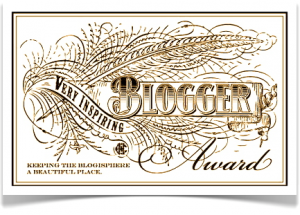 By Tracy Shawn, MA
By Tracy Shawn, MA
First Published in Psych Central Magazine
Anxiety, or mental unease, can be seen as the crying out of the internal artist: Let me out! Let me speak!
~ Frances Krsinich
My path toward healing from anxiety has not been easy or straightforward. I tried many different avenues, from traditional therapy and medication to acupuncture and herbs. But it wasn’t until I turned to the written word that I was finally able to conquer the everyday angst of ongoing anxiety.
The healing first started by simply reading about it. I devoured many self-help books on the subject, including Lucinda Bassett’s From Panic to Power, finally understanding that I wasn’t the only person leading a normal life while fighting the undertow of fear. This fact alone helped me become more hopeful and empowered. I realized that if people with thoughts just as scary — if not more so —than mine could climb out of their anxiety, then I could too.
Still, my mind remained uneasy, quite ready to spin another tale of worry into a sleepless night of fear.
Then one day I was lamenting to my friend, Eve, about my latest obsession, and she suggested I write a novel. I had been content publishing how-to and travel articles and had never thought I had a novel in me. Yet, the second she said it, I nodded in complete agreement. With so many helpful nonfiction books about how to battle worry and anxiety, why not write a novel about a protagonist struggling with this disorder? Why not write a novel that could help others?
I already knew from my own experience how I relate to and empathize with fictional characters and their journeys, and since so many people talk about how cathartic reading a good novel can be, I knew a story could provide more than just entertainment. Alongside traditional and alternative therapies, fiction can serve as a very functional kind of tool. It can take us out of our heads in such a way that it can enhance healing with the comforting ease we’ve been longing for.
I had started writing “The Grace of Crows” with that goal in mind. Then, after several months of working on it, I had developed a passion and determination I never possessed before. I found myself turning down lunch dates and weekend hikes because I actually started to enjoy the challenge of crafting, revising and even editing this long, challenging thing called a novel more than my leisure time.
And one day it dawned on me. The anxiety had decreased so much that it no longer felt like a major disease in which I had to battle, but rather like an annoying allergy I merely had to tend to from time to time. Interestingly, the more I worked on this fictional story about a woman learning to overcome her irrational fears, the more my own worries and dread diminished.
As one of my characters says to the protagonist, Saylor, early on in the novel: “—the creative part of your brain goes over to the dark side when you don’t give it the outlet it needs.” So unlock your positive passions, fellow anxiety warriors, whether they are writing, reading, or art, web designing, interior decorating, or math. Use them alongside whatever traditional and alternative therapies that are helping you, and then really engage in them. With time, you may find that your brain will have less room to go “to the dark side,” allowing the space for your creativity, talents, and yes — even happiness — to blossom.
Tracy Shawn lives and writes on the Central Coast of California. Her educational background includes a master’s degree in clinical psychology. Her award-winning novel, The Grace of Crows, is about how an anxiety-ridden woman finds happiness through the most unexpected of ways—and characters. Dubbed a “stunning debut novel” by top 50 Hall of Fame reviewer, Grady Harp, The Grace of Crows has also been hailed as an accurate portrayal of generalized anxiety disorder and a healing opportunity to the reader.
